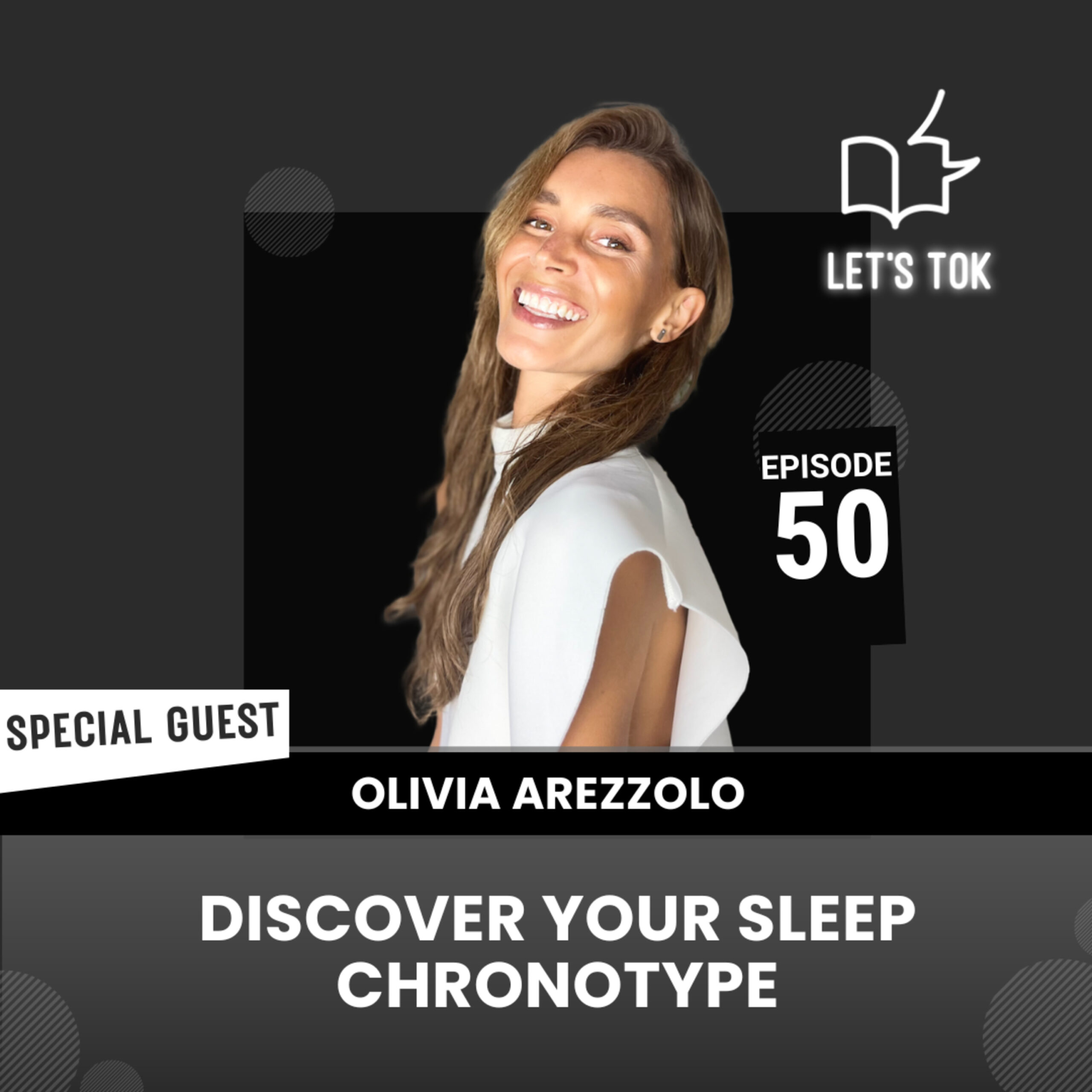
#letstokpodcast
In today’s episode of the Letstok podcast, Olivia Arezzolo shares several quick wins that can lead to improved sleep. She recommends wearing blue light-blocking glasses, spending time in natural sunlight, and opting for printed books over light-emitting devices like Kindles. These are practical suggestions that listeners can easily incorporate into their routines, resulting in better sleep quality and improved health.
Olivia has devoted her career to helping people unlock the profound benefits of high-quality sleep. With a background in psychology, sleep diagnostics, and personal training, Olivia offers evidence-based guidance for achieving sustainable lifestyle changes. She blends academic expertise and real-world experience to provide practical solutions for holistic health.
We discuss how sleep hygiene habits like a consistent bedtime routine, limiting screen time before bed, and winding down with a book or journal can lead to deeper sleep and more meaningful dreams.
Timestamps
00:02:09 – The Importance of Knowing Your Sleep Chronotype
0:02:46 Understanding Dreams and Sleep Types
0:05:16 Exploring Sleep Chronotypes
0:11:18 Exploring Different Sleep Chronotypes
0:14:09 The Impact of Diet on Sleep: Exploring the Relationship Between Sleep and Nutrition
0:16:18 The Benefits of Power Napping and the Impact of Diet and Light on Sleep Quality
0:23:09 Improving Sleep Quality: Tips for Quick Wins
00:20:45 – Sleep as a Priority
00:20:59 – The Science of Power Naps
00:24:15 – Quick Wins for Better Sleep
0:25:12 Strategies to Improve Sleep Quality
Key takeaways
-
Our dreams reflect our emotional state and mental health. Dreams can be used as a tool for processing emotions and gaining self-insight.
-
Having good “sleep hygiene” habits leads to better quality sleep and more meaningful dreams.
-
Vivid, intense dreams often correlate with lighter stages of sleep. Dreaming helps solidify and retain memories, so those who dream more may have a better memory.
-
Lack of dreaming can indicate sleep deprivation or poor sleep quality. Most people dream 4-6 times per night but don’t always remember their dreams.
-
Sleep paralysis often involves disturbing dream imagery and hallucinations upon waking or falling asleep. These episodes tend to diminish as we age.
-
Nightmares are often a response to stress, trauma, or anxiety. They can become problematic if frequent or significantly distressing.
Memorable Quote: “The first place [to start improving sleep] is to wear blue light-blocking glasses for 2 hours for a bed and reduce your exposure to all artificial lights at least 2 hours before bed.”
Follow me on
LinkedIn: https://www.linkedin.com/in/cybersaurabh/
Instagram: https://www.instagram.com/bataiye/
Twitter: https://twitter.com/EnslavedByMusic
Anchor or Spotify: https://spotifyanchor-web.app.link/e/VSICGz6sltb
Website: https://letstokpodcast.com/
Follow Olivia:
Instagram: https://www.instagram.com/oliviaarezzolo
Linkedin: https://www.linkedin.com/in/olivia-arezzolo-2112a152/?originalSubdomain=au
Website: https://oliviaarezzolo.com.au/
#letstok #podcast #letstokpodcast #sleepmatters #dreamsigns #innerlife #emotionalwellbeing #selfawareness #sleephygiene #windingdown #bedtimeroutine #limitscreens #readbeforebed
#journaling #luciddreaming #vividreams #sleepdeprivation #sleepquality #Holistichealth #wellnessjourney #selfimprovement #bettersleep #dreamtoTransform #livelifewell #insightawaiting #findyourpurpose #livelifewell
